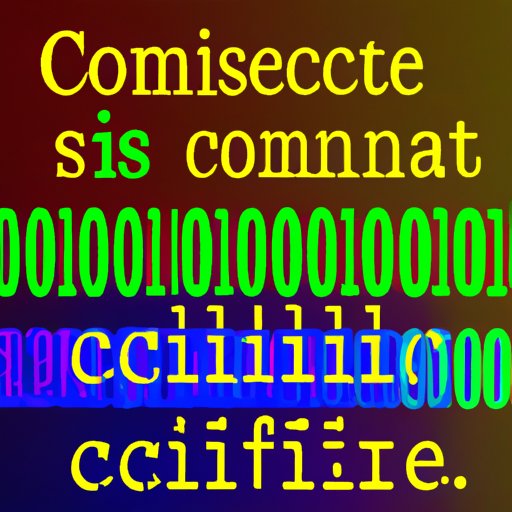Introduction
Computer science is an ever-evolving field that has revolutionized the way we live and work. From software development to artificial intelligence, the possibilities of this exciting field are seemingly limitless. But what exactly are the fundamentals of computer science? In this article, we explore the history, core concepts, building blocks, theory and applications of computer science, as well as the role of mathematics in this field.
Exploring the History of Computer Science
The concept of computers dates back to the 19th century, when Charles Babbage proposed the first mechanical computing machine. Since then, the field of computer science has evolved significantly, with groundbreaking developments such as Alan Turing’s concept of the “Turing Machine”, which laid the foundations for modern computing.
Over the years, computer science has become more sophisticated, with the development of powerful computers that can process vast amounts of data quickly. This has led to advancements in fields such as artificial intelligence, machine learning and natural language processing.
Examining the Core Concepts of Computer Science
At its core, computer science is all about problem solving. To do this, computer scientists must understand the theoretical foundations of the field, including different programming languages, algorithms and data structures. Programming languages are used to write instructions for computers to follow; algorithms are used to solve problems efficiently; and data structures are used to store and organize information.
Computer scientists must also be familiar with the principles of computational thinking. This involves breaking down complex tasks into smaller, manageable steps and considering how each step affects the overall outcome. By doing this, computer scientists can create efficient solutions to difficult problems.

Investigating the Building Blocks of Computer Science
Computer science is built on several key components, including operating systems, networking and communication technologies, and database management systems. Operating systems are the backbone of computers, controlling how they interact with the user and other devices. Networking and communication technologies enable computers to communicate with each other, while database management systems store and organize large amounts of data.
Analyzing the Theory Behind Computer Science
Computer science is also about understanding the theory behind how computers work. This includes topics such as artificial intelligence, machine learning and natural language processing. Artificial intelligence is the ability of computers to think and learn like humans, while machine learning is a subset of AI that focuses on making predictions from data. Natural language processing enables computers to understand human language.

Understanding the Role of Mathematics in Computer Science
Mathematics is an essential part of computer science. Discrete mathematics, probability and statistics, and calculus are all important topics for computer scientists to understand. Discrete mathematics deals with objects that have distinct, separate values, while probability and statistics help computer scientists make sense of data. Calculus is used to model and analyze changes in data over time.

Assessing the Impact of Technology on Computer Science
In recent years, technology has had a significant impact on computer science. Cloud computing has enabled users to access data and applications from anywhere in the world, while big data has enabled businesses to gain valuable insights from large amounts of data. The Internet of Things (IoT) is a network of connected devices that can transfer data between each other.

Discussing the Applications of Computer Science
Computer science has many practical applications, from robotics to virtual reality to cybersecurity. Robotics is the study of robots and their ability to perform tasks autonomously, while virtual reality is a computer-generated environment that can be experienced through sight and sound. Cybersecurity involves protecting computer systems from unauthorized access or malicious attacks.
Conclusion
Computer science is an incredibly diverse field, with countless applications. In this article, we explored the fundamentals of computer science, including its history, core concepts, building blocks, theory and applications. We also discussed the role of mathematics in computer science, as well as the impact of technology on this field. By understanding these fundamentals, computer scientists can build powerful and innovative solutions to real-world problems.
(Note: Is this article not meeting your expectations? Do you have knowledge or insights to share? Unlock new opportunities and expand your reach by joining our authors team. Click Registration to join us and share your expertise with our readers.)
